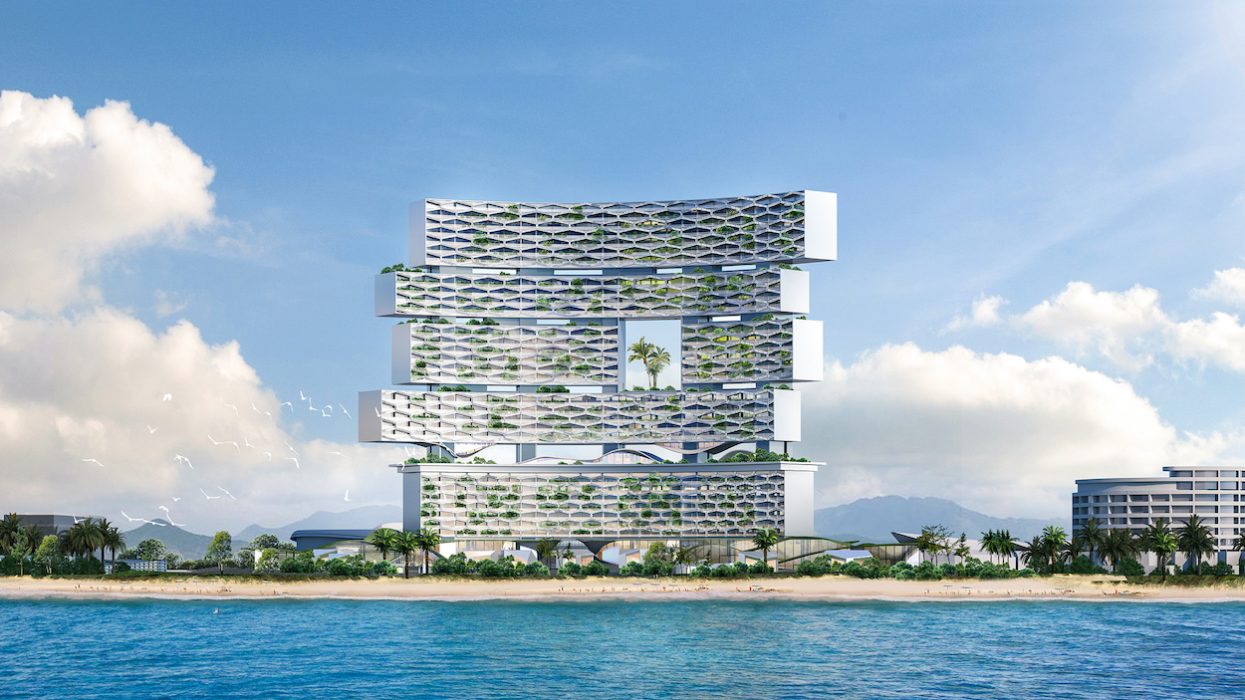The environmental impact of new construction is both dire and intensifying. Not only do buildings account for nearly 40 percent of greenhouse emissions in the United States, but the world builds the square footage of New York City every 35 days. Seeking to circumvent this trend, real estate developer Urban Villages is envisioning a first-of-its-kind hotel opening in Denver next year. Designed by Studio Gang, the 265-room Populus will become the country’s first carbon positive hotel thanks to sustainable construction and a substantial ecological effort offsite that involves planting trees across 5,000 acres of forest.
Urban Villages found an ideal partner in Studio Gang, the lauded design firm helmed by Jeanne Gang, whose global portfolio is underscored with formal elan and a sensitivity to the natural world. That’s evident from the outset at Populus, whose facade ripples with distinctive windows informed by Colorado’s native Aspen trees and will be built using low-carbon concrete mixes and high-recycled content materials. Sloped “lids” over each window extend outward to shade the building’s interior, improving energy performance while neatly channeling rainwater to keep the facade looking pristine. It’s also located on the former site of Colorado’s first gas station and will become Denver’s first new-build hotel that lacks on-site parking.
“Improving the resiliency of our cities has never been more urgent—and it includes reducing carbon emissions as well as strengthening community bonds,” Gang says. “With its distinctive aspen eye windows, the building cultivates a lively pedestrian scene in its neighborhood, while simultaneously connecting you with views of the natural wonders beyond the city limits.”


